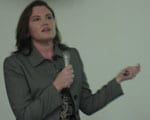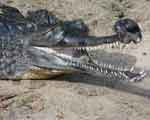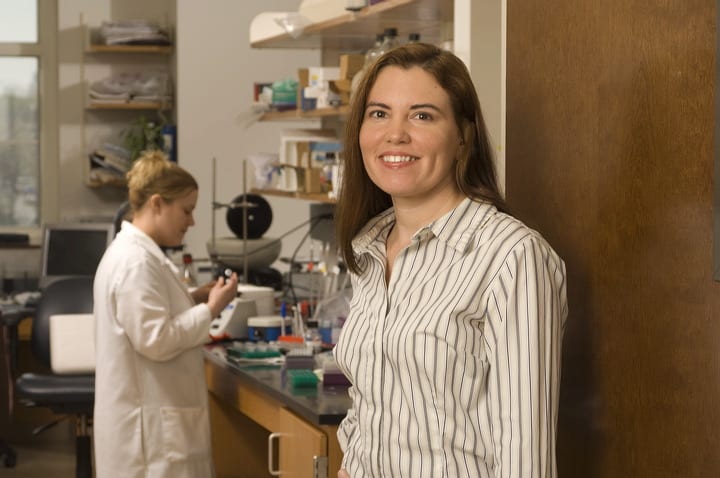Inside Higher Ed cites the research of SMU’s Anne Lincoln in a Sept. 27 article announcing new efforts by the National Science Foundation to make research grants more accessible to scientists who want to have children.
The move by the NSF is an effort to stem the tide of female scientists fleeing the fields of science, technology, engineering and math when forced to choose between their career and motherhood.
Lincoln, an assistant professor in the Department of Sociology, has done extensive research on how science careers can be incompatible with both women and men who also want to have a family.
Lincoln found that nearly half of all women scientists and one-quarter of male scientists at the nation’s top research universities said their career has kept them from having as many children as they had wanted.
The study, “Scientists Want More Children,” appeared in the journal PLoS ONE. Lincoln authored the study with sociologist Elaine Howard Ecklund of Rice University, Houston.
For the past three years, Ecklund and Lincoln have been studying what junior and senior scientists in physics, astronomy and biology think about discrimination, family life and the state of their careers. They found that both men and women say having a science career means they will have fewer children than they wanted. They also found that women were actually more satisfied with their lives than were men. And having fewer children than wanted has a more pronounced effect on life satisfaction for male scientists.
Read the full story at Inside Higher Ed.
EXCERPT:
By Scott Jaschik
Inside Higher Ed
Just last month, researchers at Rice and Southern Methodist Universities released a study showing that female scientists were twice as likely as their male counterparts to regret not having more children. Further, these regrets were seen as prompting some female grad students and postdocs to consider leaving academic science.On Monday, the National Science Foundation announced a series of new policies designed to make the agency’s grant-making policies reflect support for those trying to balance parenthood with research careers. White House officials said that the goal of the effort was to promote change not only at the NSF, but throughout research universities, with the aim over 10 years of raising the percentage of tenure-track faculty in STEM fields who are women (about 28 percent) to their representation among new STEM Ph.D.s (about 40 percent).
John P. Holdren, director of the White House Office of Science and Technology Policy, said at a news briefing that the policy changes will help both fathers and mothers, but that “it is much more common for women to give up STEM careers” than it is for men, and that the shifts are designed to prevent those departures.
Specifically, the NSF will:
- Allow postponement for one year of grants because of childbirth or adoption.
- Allow grant suspension for parental leave.
- Provide supplementary funds to cover the cost of hiring research technicians to maintain laboratories when grant recipients are on family leave.
- Permit those serving on peer review panels to meet with their colleagues virtually, rather than in person, to reduce child-care needs created by travel.
- Fund more research on the effectiveness of policies that are designed to keep women in the science pipeline.
At the same time, the White House announced a series of related efforts by non-governmental groups. The Association for Women in Science is starting a new campaign to bring representatives of government, industry and academe together to discuss ways that work places can promote training, re-entry and retraining of women for science jobs. The Association of American Universities and the Association of Public and Land-grant Universities pledged to find ways to “promote more flexible work and learning environments for those in STEM and other disciplines.”








